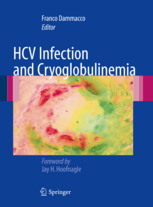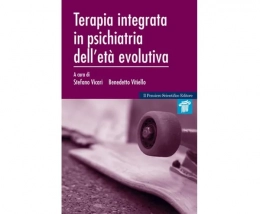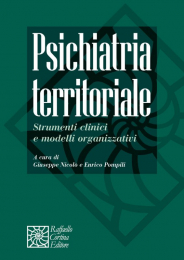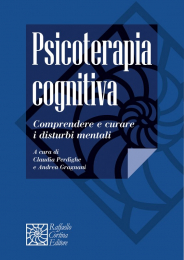Non ci sono recensioni
- A comprehensive review of cryoglobulinemia for scientists and specialists of many disciplines
- Discusses cryoglobulinemic patients and potential susceptibility to non-Hodgkin’s lymphoma
- Offers striking illustrations and color plates
In 1947, Lerner and Watson showed that the cold-precipitable proteins in serum were gammaglobulins. These “cryoglobulins” were responsible for the corresponding clinical condition “cryoglobulinemia.” Meltzer and Franklin, in 1966, provided an accurate description of the typical clinical symptoms associated with cryoglobulinemia. Subsequent progress in this field was rather slow until the end of the 1980s, when cryoglobulinemia was definitively shown to be an extrahepatic manifestation of hepatitis C virus infection.
The book is unique in its detailed presentation and fundamental approach. Highly qualified authors have contributed critical articles reviewing significant developments in our understanding of and therapeutic approach to HCV infection and cryoglobulinemia. The text is accompanied by striking color images and illustrations and highly informative tables.
This comprehensive review of a systemic disease with a complex etiology is a valuable source of up-to-date, expert information not only for basic scientists and specialists in several disciplines but also for general practitioners as well as graduate and post-graduate students in clinical and medical research.
Hepatitis C Virus infection and the role of the immune system: Natural history, pathogenesis, and prevention of HCV infection. Interactions between HCV and the immune system. Molecular characterization of B cell clonal expansion in chronic HCV-infected patients.- Cryoglobulinemia: Immunochemical Characterization, Serological Abnormalities and Histopathological Changes: Classification and serological studies of cryoglobulins. The complement system in cryoglobulinemia. The role of gC1q-R/p33 in infection and inflammation. The pivotal role of C1q-R in mixed cryoglobulinemia. Autoimmune phenomena in HCV-positive patients with mixed cryoglobulinemia. Histopathology of various tissues in cryoglobulinemic patients.- Structural and Genetic Features, Cytokines and Chemokines In Cryoglobulinemia: Mixed cryoglobulinemia cross-reactive idiotypes: structural and clinical significance. Genetic insights into the disease mechanisms of type II mixed cryoglobulinemia. The role of vascular cell adhesion molecule-1 (VCAM-1) in the pathogenesis of vasculitis associated with mixed cryoglobulinemia. Upregulation of B-lymphocyte stimulator (BLyS) in patients with mixed cryoglobulinemia. B cell deregulation in cryoglobulinemia and the role of chemokines. Alpha-chemokine CXCL10 and beta-chemokine CCL2 serum levels in HCV-positive cryoglobulinemia.- Cellular Compartments of HCV Infection (and Replication): Mechanisms of cell entry of hepatitis C virus. Infection of dendritic and liver cells. Infection of perihepatic lymph nodes and peripheral blood mononuclear cells. Infection of hematopoietic cells. Infection of the skin, renal tissue and gastric mucosa.- Mechanism(s) of Cryoprecipitation: Proteome analysis of cryoglobulins by resonance mass spectrometry.- Clinical Manifestations of Cryoglobulinemia: Experimental model(s) of mixed cryoglobulinemia. Cryoglobulinemia and chronic HCV infection: an evolving story. Demographic and survival studies of cryoglobulinemic patients. The expanding spectrum of clinical features in HCV-related mixed cryoglobulinemia. A national survey of clinical features in the cryoglobulinemic syndrome. HCV-associated membranoproliferative glomerulonephritis. Rheumatologic symptoms in patients with mixed cryoglobulinemia. Endocrine manifestations of HCV-positive cryoglobulinemia. Cryoglobulinemic cutaneous vasculitis. Central nervous system involvement and peripheral neuropathy in cryoglobulinemia. Long-term course of patients with mixed cryoglobulinemia. Clinical and immunological features of HCV/HBV co-infected patients with mixed cryoglobulinemia. Clinical and immunological features of HCV/HIV co-infected patients with mixed cryoglobulinemia. HCV-negative mixed cryoglobulinemia: facts and fancies. Cryoglobulinemia in HCV-positive renal transplant and liver transplant patients.- HCV Infection, Cryoglobulinemia and Non-Hodgkin’s Lymphomas: Chromosome abnormalities in HCV-related lymphoproliferation. Molecular features of lymphoproliferation in mixed cryoglobulinemia. HCV infection, cryoglobulinemia and splenic lymphoma with villous lymphocytes: a serendipitous coincidence or a new entity? Incidence and characteristics of non-Hodgkin’s lymphomas in a multicenter case file of HCV-positive patients with mixed cryoglobulinemia. HCV-positive patients, with or without cryoglobulinemia, show a higher prevalence of B-cell non-Hodgkin’s lymphoma. HCV-positive patients, with or without cryoglobulinemia, are not more susceptible to B-cell non-Hodgkin’s lymphoma. Waldenström’s macroglobulinemia associated to cryoglobulinemia: pathogenetic, clinical and therapeutic aspects.- Therapy of Cryoglobulinemia: Should HCV-positive asymptomatic patients with mixed cryoglobulinemia be treated with combined antiviral therapy? The role of Rituximab in the therapy of mixed cryoglobulinemia. Should the use of Rituximab be restricted to refractory and relapsing patients with cryoglobulinemic vasculitis? PIRR therapy in HCV-related mixed cryoglobulinemia. Active or indolent cutaneous ulcers in cryoglobulinemia: how should they be treated. Double filtration plasmapheresis: an effective, symptomatic treatment of cryoglobulinemia. Therapeutic approach to emergency in cryoglobulinemia. Relapse of anti-HCV-positive mixed cryoglobulinemia in patients with sustained viral response. Novel therapeutic approaches to cryoglobulinemia: Imatinib, Infliximab, Bortezomib and beyond.




